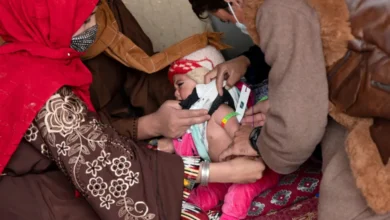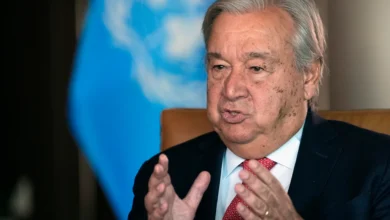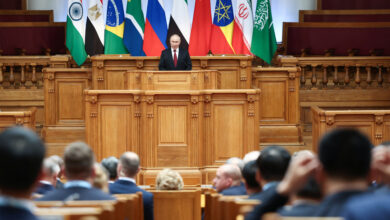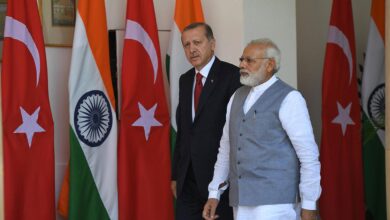Modi’s Alleged Islamophobic Comments Stir ‘Hate Speech’ Controversy Amid India’s Pivotal Election
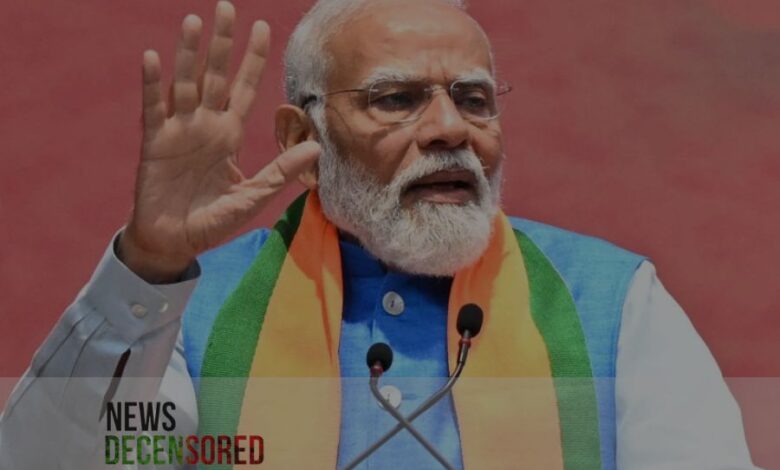
India’s Prime Minister, Narendra Modi, finds himself embroiled in controversy following accusations of delivering Islamophobic remarks during a recent election rally. The incident has ignited widespread condemnation from prominent Muslim figures and opposition leaders, further accentuating the deepening political fault lines in the world’s most populous democracy.
The backdrop for these contentious remarks is India’s mammoth weeks-long election, where Modi’s Bharatiya Janata Party (BJP) is vying for a historic third consecutive term in power. Speaking to a large gathering in Rajasthan, Modi purportedly insinuated that if the opposition Indian National Congress were to come into power, it would prioritize distributing the nation’s resources to “infiltrators” and those with larger families, a statement widely interpreted as targeting the Muslim community.
The opposition swiftly seized upon Modi’s words, accusing him and the BJP of employing divisive rhetoric to bolster their Hindu nationalist agenda, a charge that has been recurrent throughout Modi’s tenure. Calls have been made for the Election Commission of India (ECI) to investigate whether Modi’s comments violate the electoral code of conduct, which prohibits appeals to voters based on caste or communal sentiments and aims to prevent actions that may exacerbate religious or social tensions.
Modi’s remarks have drawn sharp rebuke from members of the Muslim community, who perceive them as a deliberate attempt to marginalize and vilify their demographic. Renowned Muslim journalist Rana Ayyub condemned Modi’s speech as a blatant manifestation of hate speech targeting a specific community. Similarly, Asaduddin Owaisi, a Muslim lawmaker, accused Modi of perpetuating anti-Muslim rhetoric for political gain, citing a pattern of such behavior dating back to Modi’s tenure as Chief Minister of Gujarat in 2002.
The opposition, led by figures like Congress chief Mallikarjun Kharge, has labeled Modi’s comments as divisive and a calculated strategy to divert attention from substantive issues. Kharge pointedly criticized Modi for what he sees as a degradation of the dignity of the Prime Minister’s office, attributing this decline to Modi’s association with right-wing Hindu groups like the Rashtriya Swayamsevak Sangh (RSS).
Promises of economic development and anti-corruption measures initially propelled Modi’s rise to power in 2014. However, his subsequent reelection in 2019 marked a shift towards a more overtly Hindu nationalist agenda, which critics argue has exacerbated religious polarization and fueled incidents of Islamophobia and communal violence across India.
India’s Muslim minority, constituting a significant portion of the population, has historically coexisted with other religious groups for centuries. Yet, Hindu nationalist narratives, perpetuated by groups aligned with the BJP, have sought to portray Muslims as outsiders and as a demographic threat to Hindu dominance—a narrative debunked by historians and social scientists.
Despite BJP’s claims of equality and non-discrimination, reports from various sources indicate a concerning rise in anti-Muslim rhetoric and hate incidents, particularly in regions under BJP governance. Organizations like the India Hate Lab have documented a significant increase in anti-Muslim incidents, suggesting a climate of intolerance and hostility that challenges India’s secular and pluralistic ethos.
While India’s legal framework does prohibit hate speech, critics argue that enforcement remains inadequate, with alleged perpetrators often enjoying impunity, thereby emboldening right-wing extremists. The controversy surrounding Modi’s alleged Islamophobic remarks underscores the urgent need for robust measures to safeguard religious harmony and protect vulnerable communities in India’s vibrant democratic landscape.

